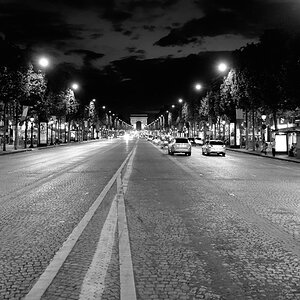amolitor
TPF Noob!
- Joined
- May 18, 2012
- Messages
- 6,320
- Reaction score
- 2,131
- Location
- Virginia
- Can others edit my Photos
- Photos OK to edit
Smartphones akin to the film to digital switch? Yeah right.
Phones are obliterating the P&S market. They're not 'replacing a lot of low end' they're utterly trashing the market. There's some money to be milked out of it yet, but that segment is over as a cash cow. The market has bifurcated into camera phones and more-or-less high end cameras (interchangeable lens cameras and a niche of very high end fixed lens cameras which seem to exist largely as halo products).
At this point the next market to get eaten is that high end system, and the better phones are definitely nipping at the low end DSLR. Where mom used to buy a Rebel, she's just using her iPhone which takes better pictures in her use cases anyways.
I don't know what will happen to DSLRs, mainly because what happens to markets like this is usually something unforseen. There are so many possibilities, some pundit will get it mostly right by accident and will be hailed as a genius. He's not. And the DSLR market will be decimated by whatever the new strange thing is, and will struggle to reinvent itself in the new image, likely fail, and will shrink down to a niche selling into the tail of a market, praying that the tail is pretty fat. See also film.






![[No title]](/data/xfmg/thumbnail/41/41759-f0f73c457ebcb6dabcbddc7a3c000487.jpg?1619739884)






